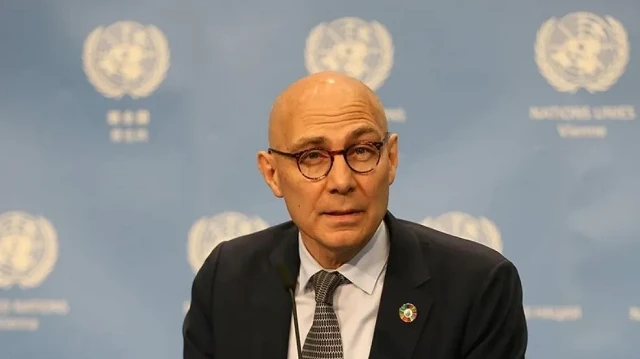
High Commissioner Volker Turk says country's population faces 'brutal repression and fear'
The overall human rights situation in North Korea has not improved over the past decade and in many instances has worsened, the UN Human Rights Office said in a report released Friday.
"No other population is under such restrictions in today's world," the report said, citing one escapee who said that "to block the people's eyes and ears, they strengthened the crackdowns. It was a form of control aimed at eliminating even the smallest signs of dissatisfaction or complaint."
Covering the period since a 2014 UN inquiry, the report said citizens are facing increased surveillance, repression of expression and access to information, and expanded use of forced labor, including "shock brigades" and child labor in hazardous sectors. It noted the continued operation of political prison camps, widespread propaganda, and violations of the right to food.
"What we have witnessed is a lost decade," said UN human rights chief Volker Turk. "And it pains me to say that if (North Korea) DPRK continues on its current trajectory, the population will be subjected to more of the suffering, brutal repression and fear that they have endured for so long."
The report found the death penalty is more widely applied and that punishments have intensified, including for sharing foreign media. It also stressed the link between the degrading rights situation, the country’s isolation, and regional peace and security.
While noting some limited improvements, such as fair trial guarantees and ratification of treaties, the human rights office said the disconnect between obligations and reality remains stark.
The report urged steps to demonstrate a commitment to rights, including ending political prison camps and the death penalty, reconnecting families, halting torture, providing information on abductees, and inviting UN mechanisms to visit.
"Taking these steps would give the people a measure of hope that a path towards a future of greater freedom in equality and rights is possible," Turk said.







